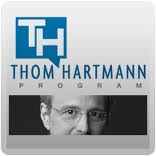
 If conservatives really want to do away with “wasteful” and “overly bureaucratic” social services in the U.S. - services like Medicaid, Social Security and foodstamps - there’s an easy alternative.
If conservatives really want to do away with “wasteful” and “overly bureaucratic” social services in the U.S. - services like Medicaid, Social Security and foodstamps - there’s an easy alternative.
It’s simple. It encourages personal responsibility. And it will do away with our current mess of programs that make up our social safety net. All we have to do is guarantee every person a universal, and unconditional, minimum income.
It sounds unusual. It sounds like we’d just be paying people not to work. And why would anyone choose to work if they’re receiving FREE money already?
That’s the knee-jerk response - but it doesn’t hold up in real-world experiments.
A paper published in 2013 looked at two groups in Uganda: one group that received a no-strings attached grant equal to their annual income - about 380 dollars per person - and a control group that received no grant. And what did the unemployed youth do when they were “paid not to work”?
The group that received the grant worked on average an extra 17 hours in comparison to the control group. And they showed a 41% increase in earnings four years after receiving the grant. They invested in skills and businesses. Individuals were 65% more likely to practice a skilled trade two years after receiving the grants.
And researchers have seen similar results from other experiments with unconditional income. In Kenya incomes increased by 33% and assets increased by 58% just one year after people received an unconditional $513 grant.
Those researchers also found that the grant reduced hunger and that the recipients were better off in terms of psychological well-being. Which just makes sense. A guaranteed income lets households make a real budget and frees people from focusing only on where their next meal will come from.
Those are numbers that show that a guaranteed minimum income promotes economic productivity and real growth from the base of the market. But those are just examples in the developing world. What about evidence from the world’s developed countries?
Well, the city of Utrecht in the Netherlands will run its own experiment with basic minimum incomes. Starting at the end of the summer, the city of Utrecht and University College Utrecht will give some welfare recipients a living income instead. Instead of receiving welfare, individuals will receive a 900 euro monthly check, and a couple or a family will receive up to 1,300 euros.
According to the Alderman for Work and Income, Victor Everhardt, the questions at the core of the experiment are: “What happens if someone gets a monthly amount without rules and controls? Will someone sit passively at home or do people develop themselves and provide a meaningful contribution to our society?”
Based on what we’ve seen in similar experiments in Uganda, Kenya, Liberia, South Africa and even Mexico: people will develop themselves and contribute to real economic growth and the wealth of the nation. People want to contribute. And they want to be productive members of society.
The problem in America, and in many other parts of the world, is that the majority of workers have to work just to survive. And again, the knee-jerk reactions is that that’s how it should be, or at least that's what billionaires who inherited their fortunes say!
But that mentality goes against the core notion of having an inalienable right to “life, liberty, and the pursuit of happiness.” When are individuals supposed to pursue happiness in a society where both parents in a household have to work two or three jobs with constantly changing schedules - just to pay the rent and keep the water running?
How are people supposed to start businesses based on their own talents and innovation if they are working dead-end jobs that require and teach no skills - just to keep food on the table?
How can anyone invest their hard earned money into a start-up business or just into savings - if every cent of their income goes to just the bare essentials?
Providing a guaranteed minimum income makes people freer and more able to participate in society. And that translates to a freer market where more people are able and willing to participate. “Where does the money come from?!” the conservatives will shriek.
Why don’t we ask Sarah Palin and the good people of Alaska? Alaska collects royalties on oil that’s extracted within the state, those royalties go to the state’s Permanent Fund, and then that fund pays out about $1,800 a year to every man, woman and child in the state.
So a good start would be to charge fossil fuel companies royalties for extracting resources on federal and state land, and to close the loopholes that companies use to avoid paying those royalties right now. Then you cut the $52 billion that we give out to those companies in subsidies, and there’s a real basis for a U.S. permanent fund.
Combine that basis with the savings from eliminating the rest of the social safety net, and there’s more than enough money for every man woman and child to not just survive - but to contribute meaningfully to our economy and society.
So the next time a conservative tells you about government waste and fraud with Medicaid and Foodstamps, just remind them. We could eliminate every single social welfare program and streamline our social safety net. If we simply set up a guaranteed minimum income based on living wages around the country.



